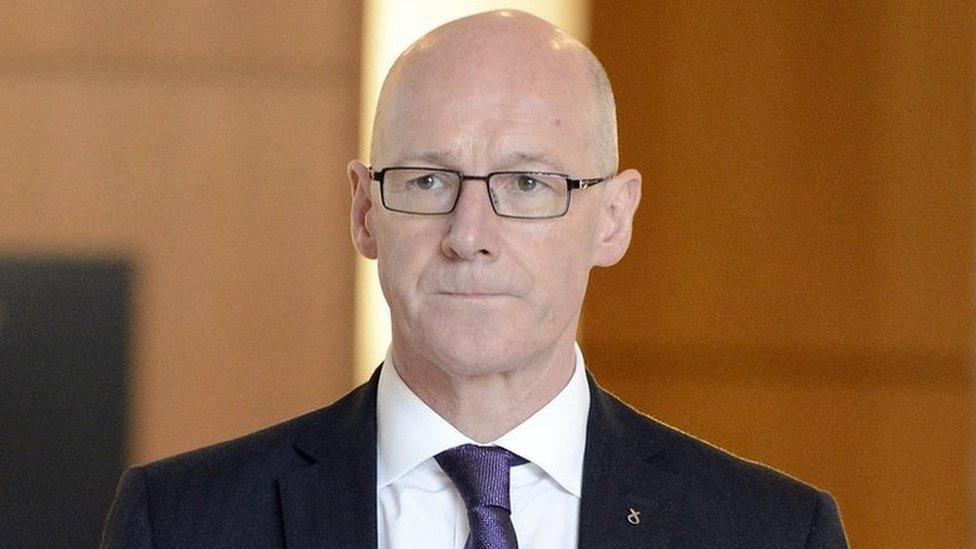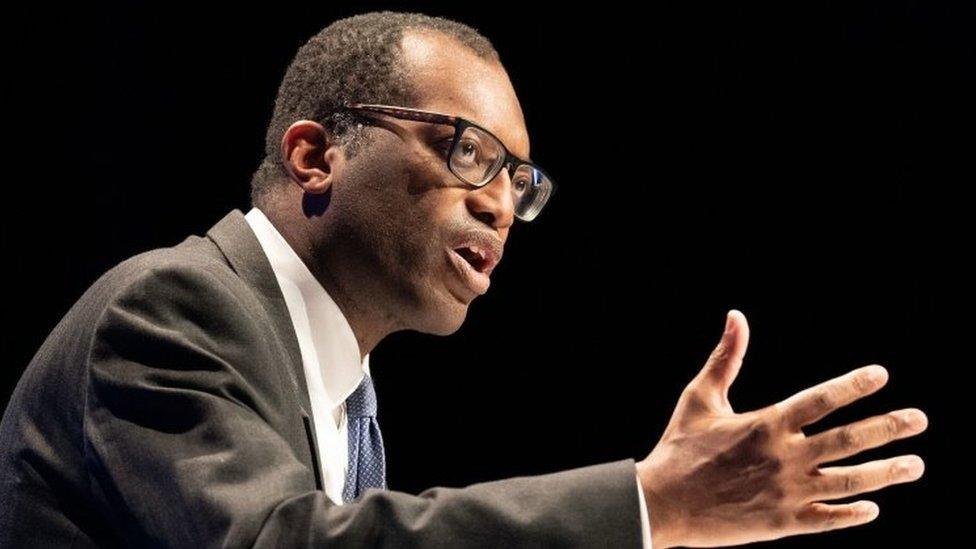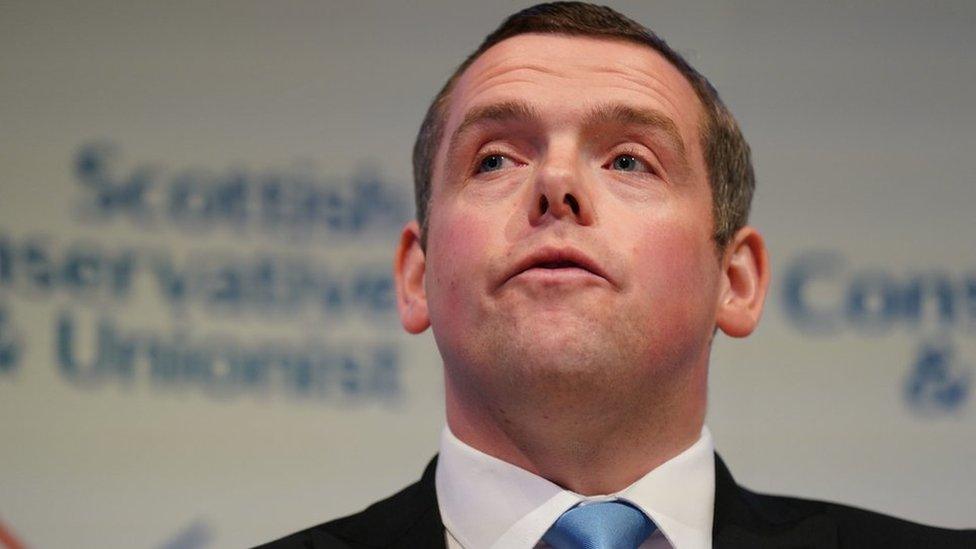Turmoil warning as Scotland sets draft budget date
- Published

John Swinney warned uncertainty over the UK government's plans would have an impact on Scotland
The Scottish government has warned of "ongoing turmoil and uncertainty" as it prepares to unveil its draft budget on 15 December.
Deputy First Minister John Swinney said he was "content to support" that date.
However, he said the UK government's budget plans would have an "obvious impact" on Scotland's ability to draw up tax and spending proposals.
Chancellor Kwasi Kwarteng is not expected to make a full budget statement to MPs until spring 2023.
A "mini-budget" from Mr Kwarteng in last month sparked turmoil in the markets, eventually forcing a U-turn on plans to abolish the top rate of tax for the highest earners south of the border.
He is due to set out the UK's Medium-Term Fiscal Plan on 23 November, with Office for Budget Responsibility (OBR) reports to be published on the same date likely to provide more information on funding to the Scottish government.
Mr Swinney, who is responsible for the finance and economy brief while Finance Secretary Kate Forbes is on maternity leave, said ensuring the Scottish government's draft budget was ready just three weeks after this would be "exceptionally challenging".
But he agreed to set out plans for 2023/24 on 15 December amid speculation the UK government could bring forward its announcement.
Holyrood's finance committee had previously urged Mr Swinney to commit to publishing the draft budget on this date - with deputy convener Daniel Johnson insisting this was necessary to "protect time to achieve effective and meaningful parliamentary scrutiny" of the Scottish government's plans.
Ready to adapt flexibly
In a letter to Mr Johnson, the Deputy First Minister said: "It is crucial for us to have a clear plan in place for Scotland's budget to provide certainty and reassurance, and collectively agreeing a date is welcome.
"As it is becoming less clear if the UK government will publish the OBR forecasts earlier than the originally announced date of 23 November, I must stress that this risks creating an exceptionally challenging timeframe in which to deliver the Scottish budget.
"In these uncertain times, we will need to be ready to adapt flexibly and prudently to ensure that Scotland's interests are best protected."
Mr Swinney referred to the "ongoing turmoil and uncertainty regarding the UK government's plans for its autumn budget", adding: "The Scottish government is not privy to those discussions despite the clear and obvious impact that this has on our ability to plan our 2023-24 budget."
He said it was "essential to ensure that there is adequate time to prepare the Scottish budget after the Office of Budget Responsibility forecasts are published".
But he acknowledged the "need for effective parliamentary scrutiny of the Scottish budget".


Meshing the Westminster and Holyrood budgets has become a tricky piece of political and legislative choreography, made more difficult by exceptional Covid spending, as well as years of Brexit and leadership instability in Downing Street.
John Swinney had to set 15 December as his budget day by this week, in order to give the Scottish Fiscal Commission the 10 weeks it needs to prepare its figures on his choices.
The interim finance secretary told MSPs on Holyrood's finance committee this week that he does not see how the Treasury can afford its tax cuts and also provide financial markets with fiscal discipline without taking a carving knife to the spending review it carried out only last year.
Even when the Chancellor sets out his plans for managing the deficit and debt, currently scheduled for 23 November, and even with the report on the same day from the Office for Budget Responsibility, the Scottish government is not clear it will know how much spending will be cut until the Westminster budget is announced, and that will not be until next year.
So the budget process this winter, more than ever, will have a lot of moving parts, which could in turn have an impact on a lot of public services.
Related topics
- Published4 October 2022

- Published3 October 2022

